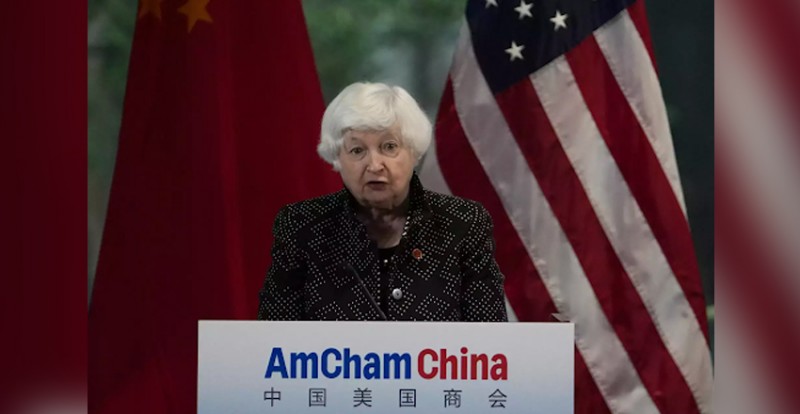
In a bid to address concerns over manufacturing overcapacity and foster balanced economic growth, the United States and China have agreed to engage in intensive discussions. Treasury Secretary Janet Yellen made this announcement following her meeting with Chinese counterpart He Lifeng in Guangzhou, marking her second visit to one of China's key industrial and export centers in the past nine months.
Yellen's visit comes against the backdrop of strained relations between Washington and Beijing, exacerbated by issues such as TikTok, Taiwan, and access to advanced technology. Despite these tensions, there has been a slight improvement in bilateral relations since the meeting between Presidents Joe Biden and Xi Jinping in San Francisco last November.
"The US and China have agreed to engage in intensive discussions on achieving balanced growth in both domestic and global economies. These discussions will encompass topics such as macroeconomic imbalances, particularly in relation to manufacturing overcapacity. I aim to advocate for a fair playing field for American workers and businesses during these exchanges," stated Yellen.
During her visit, Yellen also criticized China for what she termed as "unfair" treatment of American and other foreign companies. She highlighted China's adoption of unfair economic practices, including barriers to entry for foreign firms and coercive actions against American companies.
China's support through subsidies and policies has spurred investments by solar panel and electric vehicle (EV) manufacturers in the country, resulting in a significant increase in production capacity and a subsequent decrease in costs. However, this has led to concerns in the West about potential flooding of markets with low-priced exports, posing a threat to local employment.
Last month, Beijing accused the US of practicing "classic protectionism" by imposing barriers on Chinese EVs and filed a case with the World Trade Organization regarding American subsidies for the industry.
For Xi Jinping's administration, Yellen's visit represents one of the final opportunities to influence American policy ahead of the upcoming US election in November. Former President Donald Trump had previously threatened a 60% tariff on Chinese goods if re-elected.
Forbes Ranks Top 10 Powerful Countries in the World, Which Are They?
China Unveils New Names for Arunachal Pradesh Locations Amid Tensions with India